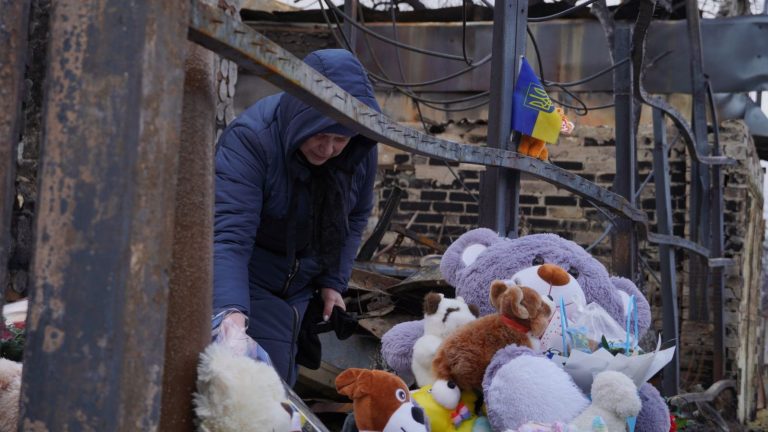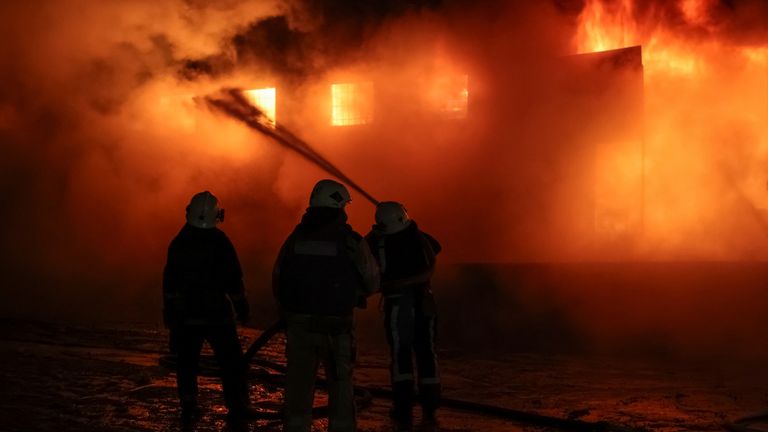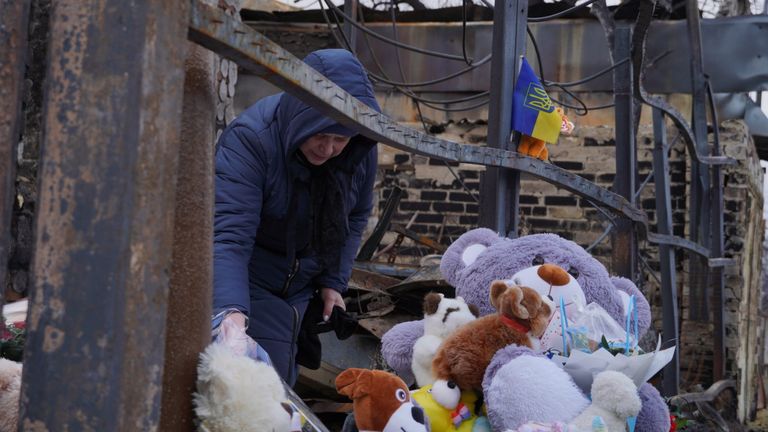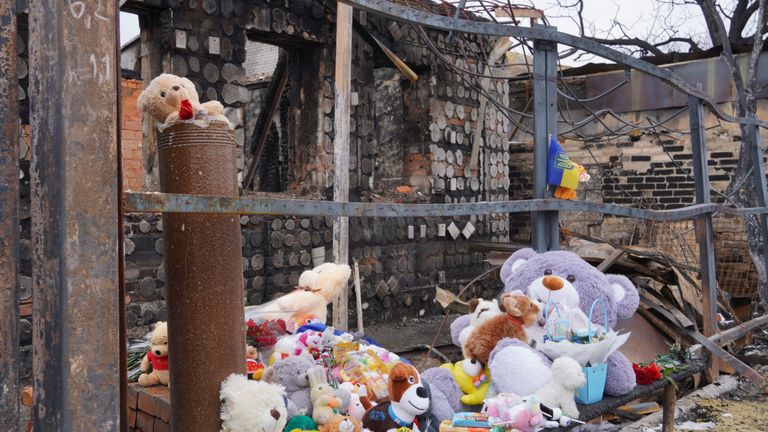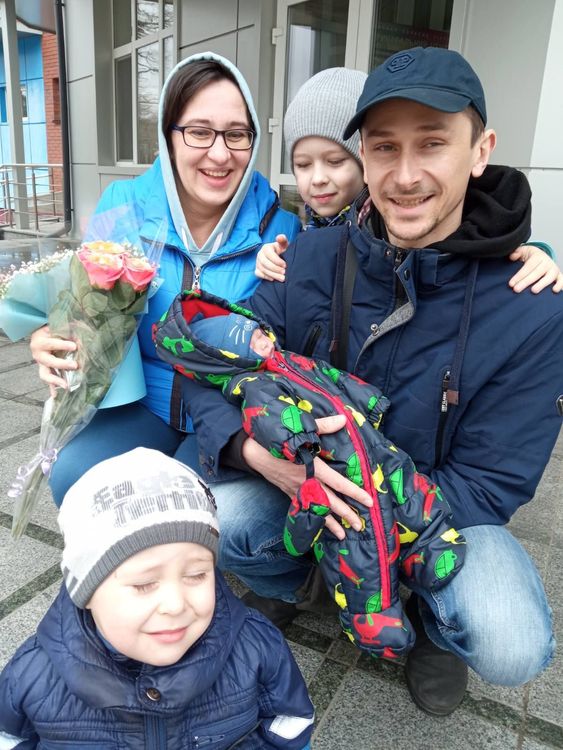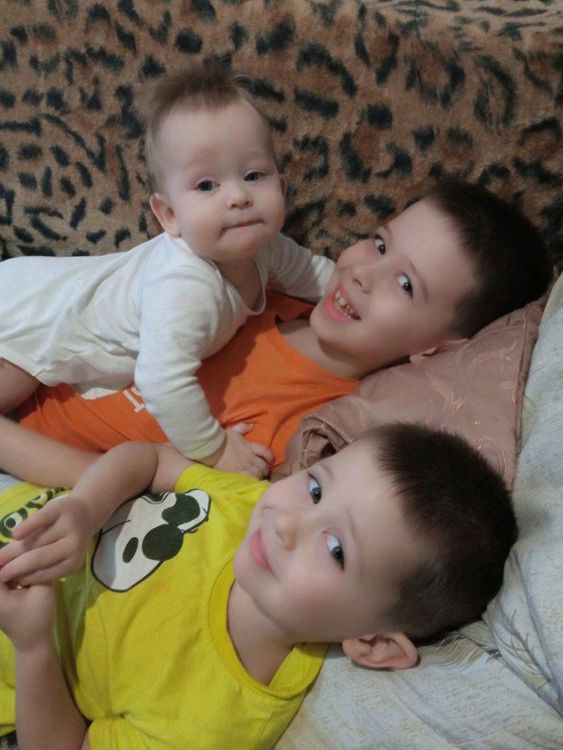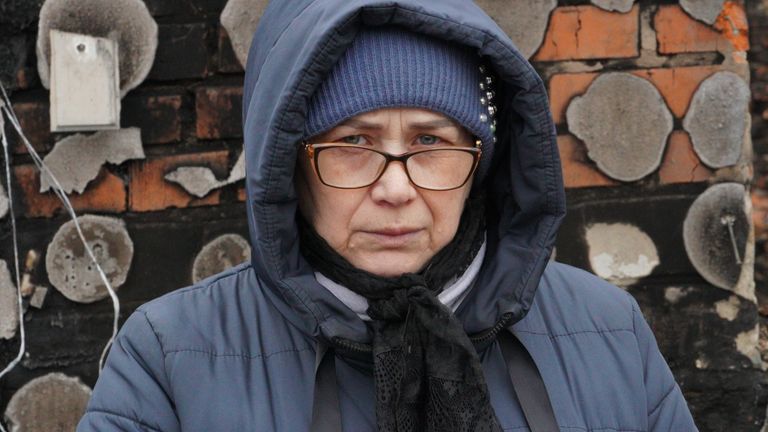In a country like Ukraine, where entire cities are being razed to the ground, the humanitarian fallout is so enormous that it often overwhelms journalists' ability to describe it.
Instead, we rely on numbers – for example, figures from the UN human rights monitoring mission in Ukraine, which reported that 10,582 civilians had been killed since Russia launched its all-out offensive.
We quote statistics from the Office of the President of Ukraine, which say that 529 children have died as a result of the fighting since February 2022.
But in the city of Kharkiv, the consequences of this conflict were confronted in a way that was so cruel and devastating that the meaning within these numbers was painfully revealed.
On February 10, the Russians targeted a large fuel depot in the city using three of their own Iranian-made Shahed drones.
Their attack was successful – and spectacularly – with smoke and flames rising from the torn tanks miles above the city. A million gallons of diesel and gasoline poured into surrounding streets, flowing like lava into a nearby residential neighborhood.
The heat was so intense that firefighters struggled to get close to the blaze. About 4,000 square meters were burned, in addition to 15 houses in the Nemshlyansky district of the city.
When we first see Tetiana Putiatina, she is standing outside the charred remains of 32 Kotilnya Street. She lived here with her only son Hrihori and his family of five.
As I approached, I realized the 61-year-old was crying.
“The children were sleeping,” she whispered, “and there were three of them: seven years old, four years old, and ten months old. They didn’t have time to go out and collect the children.”
Tetiana was visiting a relative on the night of the attack, leaving the rest of the family at home.
“By 9 a.m. I had already returned, when they were removing the bodies. They didn't show them to me. They were badly burned.”
Her son, Hrihori, was a construction worker, and his wife, Olna, worked in the local prosecutor's office. She told me they had spent most of the past two years trying to keep their three boys safe.
Their eldest child was Oleksiy and Mykhaylo was in the middle. Buffalo – or Pasha as they called him – was the baby.
Their parents had taken them to western Ukraine at the beginning of the war when Russian forces tried to storm Kharkiv, but they returned to the city several months later.
Tetiana said the family was rushing to their underground shelter in the park when the sound of bombing approached.
But on the night of February 10, they had no time to escape, no chance to avoid the river of fire that was flowing their way.
“They found my son here,” Titiana said, pointing to a spot on the ground in what was left of the corridor. “This is where he was lying.”
“It seemed like he was looking for a way out. Here in the bathroom, where Olena was, she was holding two of the children close to her chest. The middle boy (Mykhaylo) ran into the kitchen. Maybe he was trying to get to his father.”
Their funeral was held three days later, and in a recording of the event, we see the surviving family members trying to cope with the disaster. Baby Pasha is buried with his mother and we see Tetiana wrapping her arms around their coffin as she cries.
When these photos were published on the Internet, some mocked Tatiana and accused her of pretending to be upset. She said they were Russians seeking to deepen her wounds.
“When we were mourning in the cemetery, I was carrying the coffin. There were comments, like ‘What an actress’ and ‘She does her part so well’.”
She started crying. “They say they are liberating us. Who are they liberating?”
“I myself was born in the Belgorod region (in Russia). Will they free me?
“My in-laws and my husband’s parents were all from Russia. We all spoke Russian.”
The fuel depot was still smoking when we visited the site and the surrounding roads were littered with black sticky residue. We've seen workers trying to fix heating and water pipes, but there are things in Kharkiv that will never be fixed.
A security guard working next to what's left of the fuel depot told us it was like looking at a picture of hell.
“You know, the stench will remain for years. It will remain and it affected the atmosphere here because there were huge clouds of smoke. It was terrible.”
Read more:
A day of mourning and anger on the anniversary of the Ukraine war
Baltic states on the frontline between NATO and Russia call on allies to “wake up”
The surgeon was smuggled to Mariupol
The consequences of this attack will strike many people as a depressing feature of daily life in Ukraine, another number in an endlessly growing statistical column. But there is nothing normal in this for Tatiana Putiatina.
The destruction of her home and the death of her loved ones left her with nothing to live for.
“Of course, it's difficult. I come here every day, sometimes several times a day.
“I will come here and walk around the house where their bodies were found.
“I will scream, I will cry, then I will leave.”

